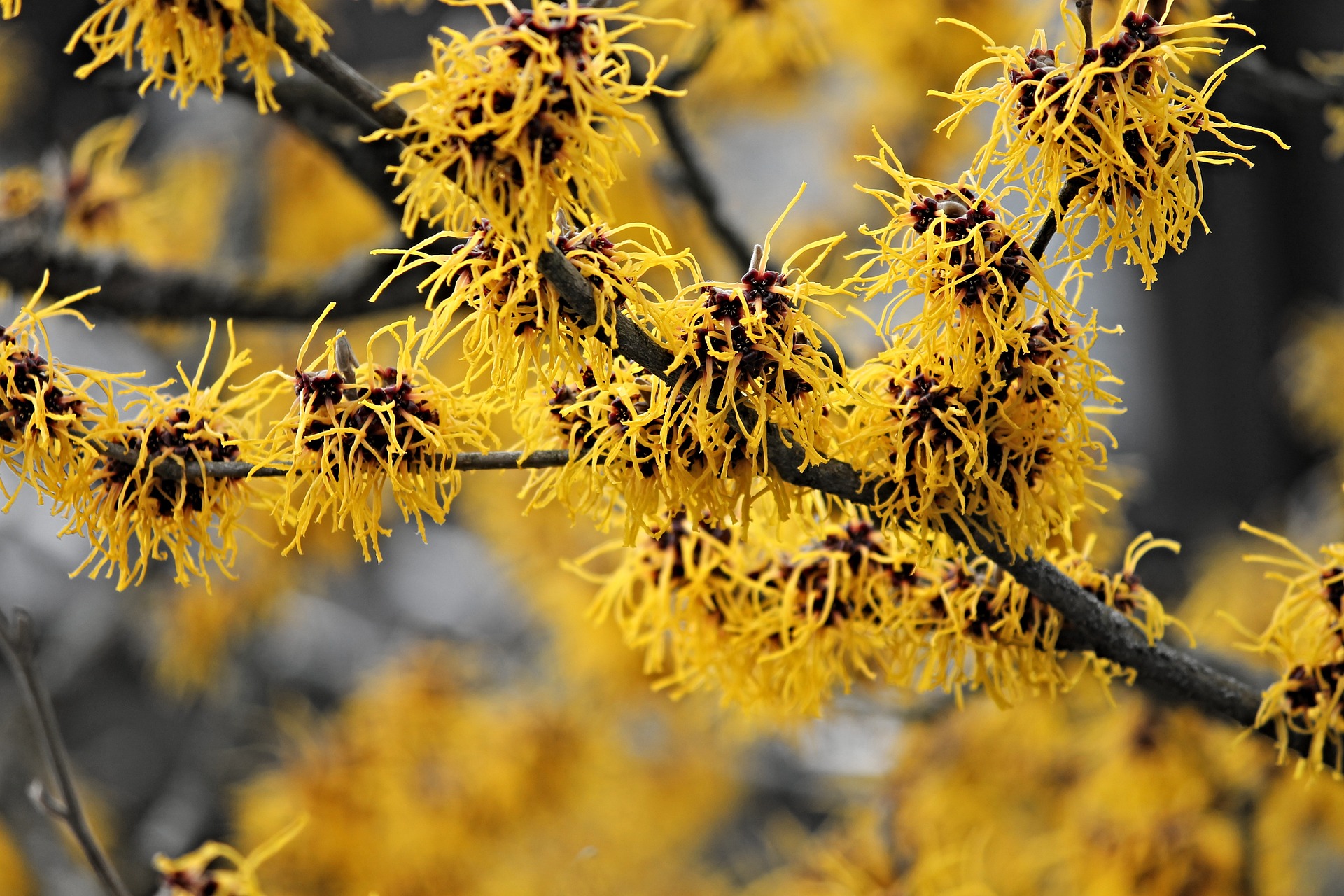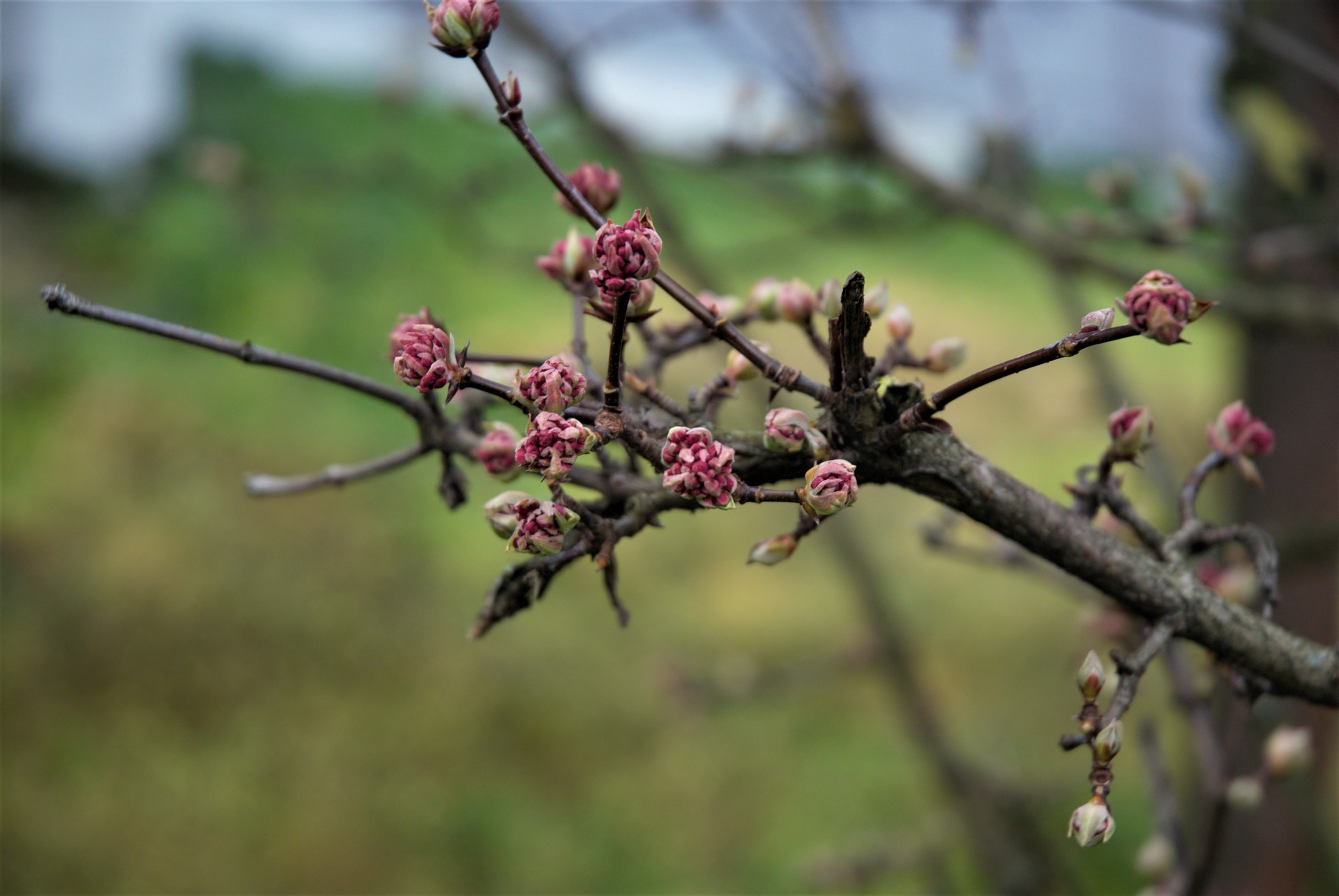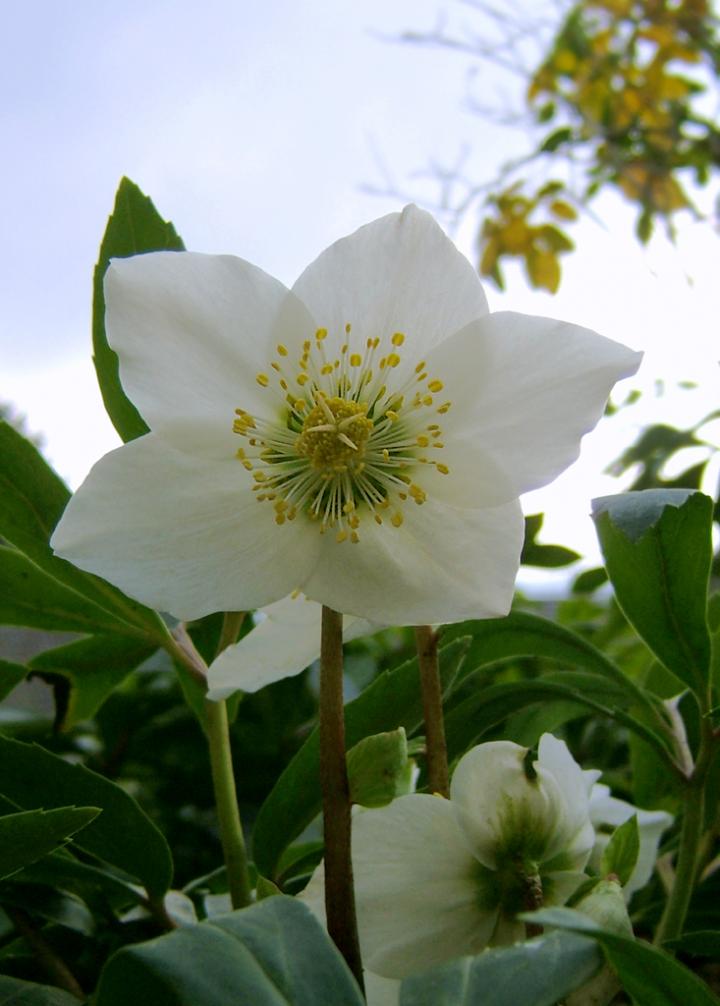Which plants bloom in winter? Which shrubs have red berries?
Does your garden feel drab, dull, and uninteresting in winter? Don’t forget about this beautiful season! Focus on adding a few seasonal stars. Here are 15 winter-flowering plants and shrubs that offer flowers, berries, fragrance, and color during the colder months!
Under leaden skies, nipping frosts and chilling wind it can sometimes feel like it is out of bounds until spring. This is not necessarily the case as there are some beautiful plants and shrubs that add that extra dimension and vivacity we need so badly to enliven our spirits amidst the gloom.
You might not think about landscaping in winter, but your yard can be just as beautiful in the winter as in the spring. Imagine a window view of a landscape that is alive with color and texture: bright yellow, red, and white flowers bursting into bloom and lush green, blue, and golden foliage.
Now imagine it in winter.
By learning a bit about plants that exhibit interesting winter features, you can create a garden that will stand out in every season. Filling the garden with scent, texture and color in winter is less challenging than might first be supposed. For example, consider these ideas.

For Fragrance
- Witch Hazel (hamamelis) looks amazing as a specimen shrub, especially if under planted with early spring bulbs. Their vibrant spidery flowers in orange, red or yellow clothe the bare branches and have a spicy fragrance. Witch hazel has long been used in traditional medicine for treating inflammation and skin damage. Freshly cut rods from the plants were also used for water divination.
- The Oregon Grape (Mahonia aquifolium) or holly-leaved barberry is a stalwart evergreen with holly like leaves. It produces dense clusters of yellow flowers in early spring, followed by ornamental dark bluish-black berries. The spectacular plumes of flowers have a scent reminiscent of lily-of-the-valley. “Charity” is an excellent variety and is a great focal point for a shady corner.
- Both Wintersweet, which smells of honey, and Winter Jasmine are easy to grow and thrive in a sheltered spot.
- Arrowood Dawn (Viburnum bodnantense) is low maintenance and has delightful, scented pink blossoms. In warm winter areas (such as the South and Pacific Northwest coast), flowers bloom on naked stems from late autumn to early spring.

For Color
The glittering of a hard frost serves to highlight winter color enhanced by the pared down backdrop of the dormant plants.
- The Christmas rose, the earliest blooming hellebore, produces persistent white flowers with just a hint of pink in December and January. Cutting some of their ragged leaves off shows them to perfection, no wonder Victorian gardeners used to display them (still growing) under a sheet of plain glass so rain didn’t damage the petals. They self seed profusely and hybridize too which adds to the excitement of growing them.
 Photo Credit: Thinkstock
Photo Credit: Thinkstock
- Dogwood shrubs and trees really pop win the winter with vibrant winter stems. The red twig dogwood bears bright red branches which look beautiful against white snow. Dogwood shrubs come in a range of colors including burnished gold of Bud’s Yellow yellowtwig dogwood, Anny’s Winter Orange, and Baton Rouge a true scarlet. My own favourite is Mid Winter fire, which true to the name lights up a dull corner like a brazier.
-
Camellia’s vibrant flowers flower throughout winter in pink, yellow, and red. Plus, the glossy leaves are gorgeous. Just be sure to choose a winter-blooming variety.
- Hardy cyclamen (C. Coum) blooms throughout the winter in Zones 5 to 9 with flowers insides of pink, purple and white—plus, the decorative foliage is beautiful.

For the Berries
Berries add a splash of cherry form and color against a wintry backdrop and encourage shy birdlife into the garden.
- Hollies are both traditional and gorgeous, come in red and yellow berried varieties and support a whole range of wildlife including the Holly Blue Butterfly. Ilex verticillata, the winterberry, is a species of holly which produces bright red berries that persist through the entire winter and into spring. Sometimes, though, to produce berries there needs to be both a male and female shrub in the vicinity so do check this out if you are buying one.
- English Yew grows very slowly and so is excellent when used as a structural plant, good for topiary and makes beautiful dense hedges. The birds love the berries though there are poisonous to humans.
- Beautyberry (Callicarpa americana) is a deciduous shrub with gorgeous purple berries in winter and thick green foliage; it supports many bird species.
- The red berries of highbush cranberries; the red, yellow, purple, and bronze fruit of crabapples; and the variety of fruit and berries offered by cherries, viburnums, and roses can also be considered the flowers of winter.
Take time in winter to see the bones of your yard. Read about Winter Landscaping: Tune in to the Four Winds.
ADVERTISEMENT








